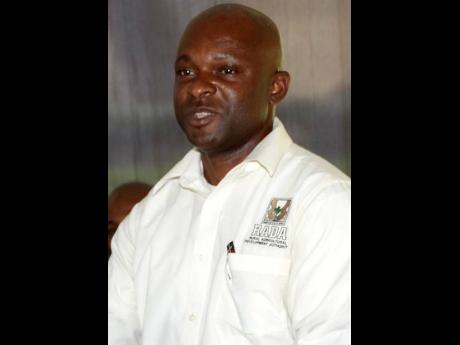RADA: Tractors coming to ease St Mary farmers’ woes
ST MARY farmers whose production has been slowed by the absence of a reliable tractor to help with land preparation over the past four months are soon to get some relief with the acquisition of two such vehicles for the parish.
Chief executive officer of the Rural Agricultural Development Authority (RADA), Winston Simpson, told The Gleaner that they are to get a 950 Tractor. He also said that the Government is in the process of acquiring another tractor, which is being sourced with the assistance of the Japanese government.
At the recent annual general meeting of the St Mary Association of Branch Societies of the Jamaica Agricultural Society (JAS), RADA Parish Manager Delroy Luke reported that the single tractor assigned to the agency had broken down time and again, causing frustration and production setbacks for the 13,500 registered farmers in the parish.
He explained that the agency had made a request for a larger tractor, as the soil is predominantly clay-based and that has been taking a toll on the single vehicle serving the entire parish.
Luke also said that constant repairs and high fuel costs had made it impractical for them to keep using that tractor.
“They had a small tractor which couldn’t manage the clay, but the 950 will manage, which we have decided on because it is a bigger tractor, and we are in the procurement stage at the ministry to send another one out there,” Simpson explained.
“We are pushing agriculture in St Mary and, in particular, in the New Pen area, where the Government is putting a lot of funding into increasing Irish potato production,” he added.
“In light of the ongoing drought-mitigation efforts, we are now liaising with the National Irrigation Commission, which has done some preliminary drilling and identified at least one water source. So we are constructing ponds to harvest water and will be giving more support to the parish by bolstering cultivation with the use of the two tractors.”
Luke went on to tell the meeting that the last Irish potato project was a disaster, with the farmers racking up significant losses.
“For want of a better word, the farmers them lost them shut (shirt),” he said.
The parish manager went to explain that after distributing 6,000 bags of Irish potato seeds and planting out 96 hectares of land, the drought wreaked havoc on the crop.
“The planting period would have been February, March, April and what we have realised is that the drought began in January and continued some time into April or thereabout, so the tubers that should have been developing in the January, February, March period would have been negatively impacted,” he said.

